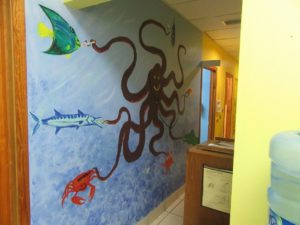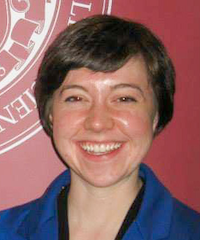Setting the Stage
October 2nd, 2021 by Rachel Somers
Posted in Uncategorized|
Hello everyone, and welcome to my Roatán blog! I wanted to take a moment to introduce myself and let you know how things are going to go on this blog. Full disclosure, most of this will be written after my trip is over, and because of that I’m going to format it a bit differently. So rather than a daily/weekly update, I want to discuss things more by topic than by time. But I reserve the right to change my mind at any moment, so we’ll see how it goes!
About the Author
Friends and family reading this will already know who I am and what I do, but just in case anyone else is reading, here’s a little bit about me…
I am a nurse, living and working in New Hampshire. Originally from Vermont, I’m a true northerner – I even love snow and cold weather! Despite growing up in small-town New England, I’ve always loved other cultures and languages, and had a staple diet of reading missionary biographies in my teenage years. So when it came time to go to college, I chose to major in Biology and Intercultural Studies, with the vague goal of being able to work overseas, somehow, somewhere, someday. There was a seven year journey after graduation that led me to returning to school for nursing. I have been a nurse now for nearly seven years, starting in an inpatient cardiology unit before moving on to the emergency department. It was always on my mind to prepare myself to take my nursing skills overseas, so when I heard about INMED, I jumped at the chance to get some practical training. And now I’m here in Roatán, Honduras, for a three week service learning experience at Clinica Esperanza.
Location
Roatán is one of the Bay Islands, or Islas de la Bahia, off the eastern coast of Honduras. It was originally a British Protectorate, and has some famous pirates associated with its history, including John Coxon (after whom the main city of Coxen Hole is named), and Captain Morgan. Now the islands, including Útila and Guanaja, belong to Honduras. But because of the British influence (and the current influence of massive tourism), many of the native islanders speak English and Creole. I have certainly encountered more English speakers here than I have in any other Spanish speaking country! Many people from the mainland of Honduras have moved over here due to the tourism industry. Roatán is famous for its beaches and reefs, so many tourists come for snorkeling and scuba diving, and it is also a cruise ship destination. As you can imagine with any tourism based economy, the Bay Islands have been hard hit by COVID-19. While things are slowly opening back up, a significant amount of people have been without a stable income since the beginning of 2020.
Clinica Esperanza is a private clinic run by Peggy Stranges, an American nurse who moved to Roatán about 20 years ago, and subsequently founded this clinic due to the need for medical care she encountered here. Clinica Esperanza now provides care to anyone and everyone, regardless of ability to pay, and easily sees over 100 patients daily. They provide dental, pediatric, OB/GYN, diabetic and general health care. You can learn more about the clinic at their website: http://clinicaesperanza.org. I encourage you to check it out – the clinic does an amazing work here, and is staffed by many amazing people.
Cast of Characters
Peggy Stranges: founder of Clinica Esperanza, and basically a legend
Martha: administrative assistant and chauffeur estraordinaire
Beiry: Peggy’s right-hand woman and manages a lot of the clinic’s operations
Aidylet, Everlie, Lic, Greicy, Lena and Karla: fantastic nurses at the clinic
Dr. Nathan and Dra. Heidy: “servicio social” doctors who are here at the clinic for 6
months as part of their “give back” after having completed their medical training.
Dra. Susanna: diabetic specialist
Dra. Laura and Dr. Alfredo: general medicine/primary care providers
Dr. Rafael: pediatrician
Dra. Francia: OB/gyn provider
Dra. Shironi: dentist
Dra. Marjori: pharmacist
Jessie and Christopher: receptionists
Gladis: housekeeper
Julio: main security guard
Allison: administrative assistant
Susie: in her own words, “I do whatever job they need.”
Nic and Adrian: hosts at the “Roatán Refuge”
John and Bev: networkers, guides, and all around wonderful people
Hopefully you’ll get to know some of these people a little better throughout the rest of this blog




 Hello! My name is Rachel Somers. I am a graduate nursing student, and I’m starting my INMED service-learning experience at
Hello! My name is Rachel Somers. I am a graduate nursing student, and I’m starting my INMED service-learning experience at 